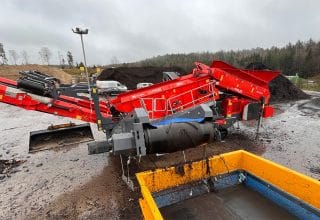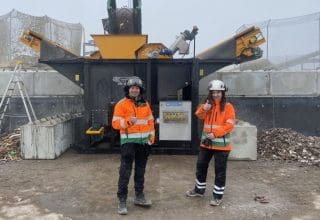Failure to sort waste can lead to the loss of important materials or make their recovery difficult and expensive. It may also mean that some materials cannot be recycled at all. Sorting waste also reduces the need to extract new raw materials from nature, which is important for conserving natural resources and reducing environmental impacts.
Sorting waste is also important to reduce the amount of waste sent to incinerators or landfills, which can help reduce the burden on the environment.
How many tons of waste are generated in construction and demolition in Sweden annually?
According to statistics from Avfall Sverige, the country's trade organization for waste management, in 2019 there was approximately 7.5 million tons of waste from construction and demolition activities in Sweden. It is important to recycle as much of this waste as possible to reduce the burden on the environment and to save natural resources.
Which construction wastes have the greatest impact on the environment?
There are different types of construction waste that can have a greater or lesser impact on the environment depending on how they are managed and recycled. However, some of the most common types of construction waste that can have a major impact on the environment are:
- Asbestos: Asbestos is a dangerous material commonly found in buildings and can cause cancer if not handled properly.
- Paints and solvents: Paints and solvents contain chemicals that can be harmful to humans and the environment if not handled properly.
- Electronic waste: Electronic waste, such as computers and mobile phones, contains harmful chemicals and metals that can damage the environment if not properly recycled.
- Hazardous waste: Hazardous waste, such as batteries and fluorescent tubes, can contain harmful substances that can damage the environment if not properly managed.
- Concrete and mortar: Concrete and mortar can be difficult to recycle and can cause problems with landfills and incinerators.
It is important to handle these materials properly to reduce their impact on the environment and to recycle them as efficiently as possible. Norditek has extensive experience and knowledge of how to handle different types of waste with the goal of maximizing the value of the input material.




